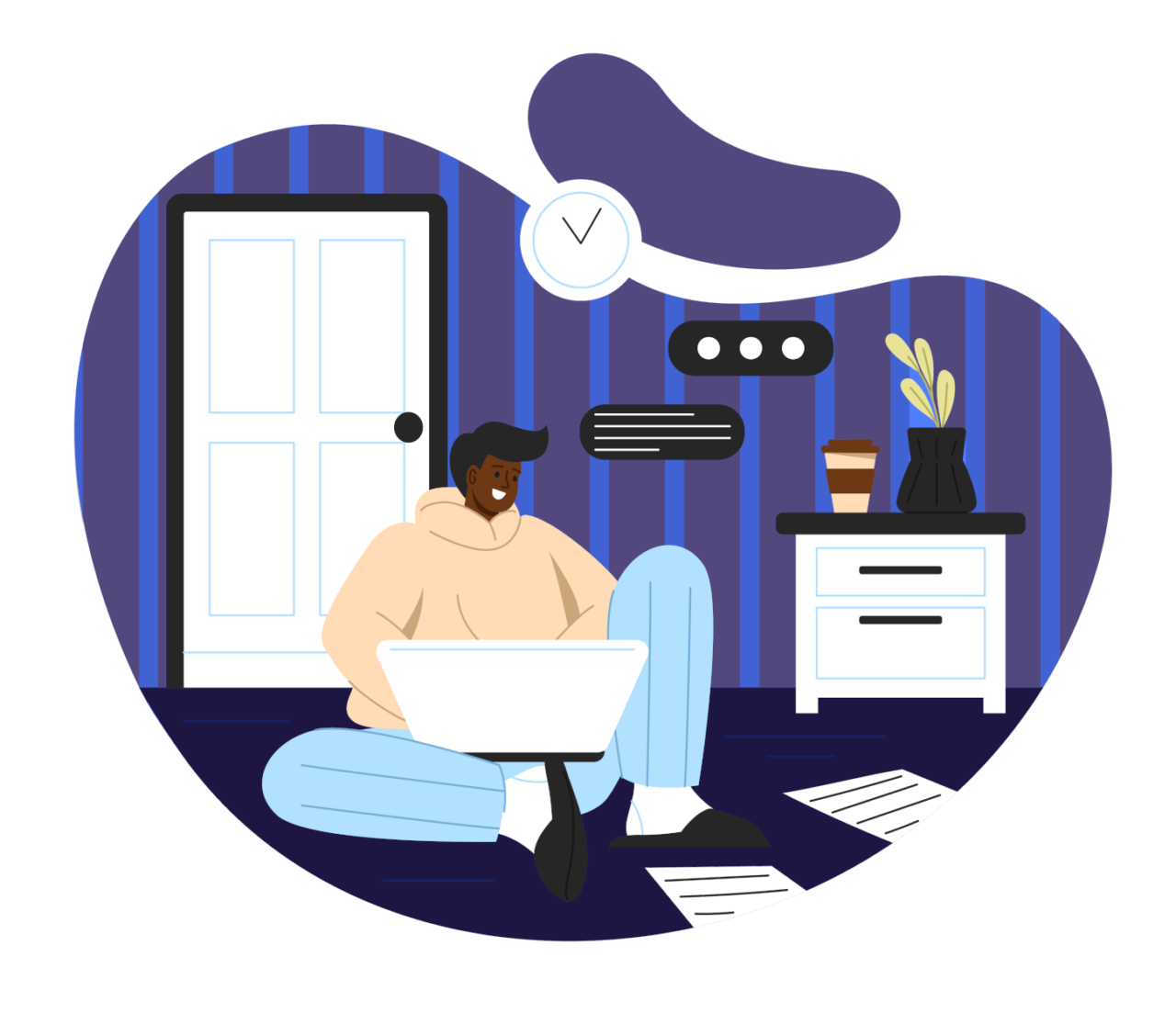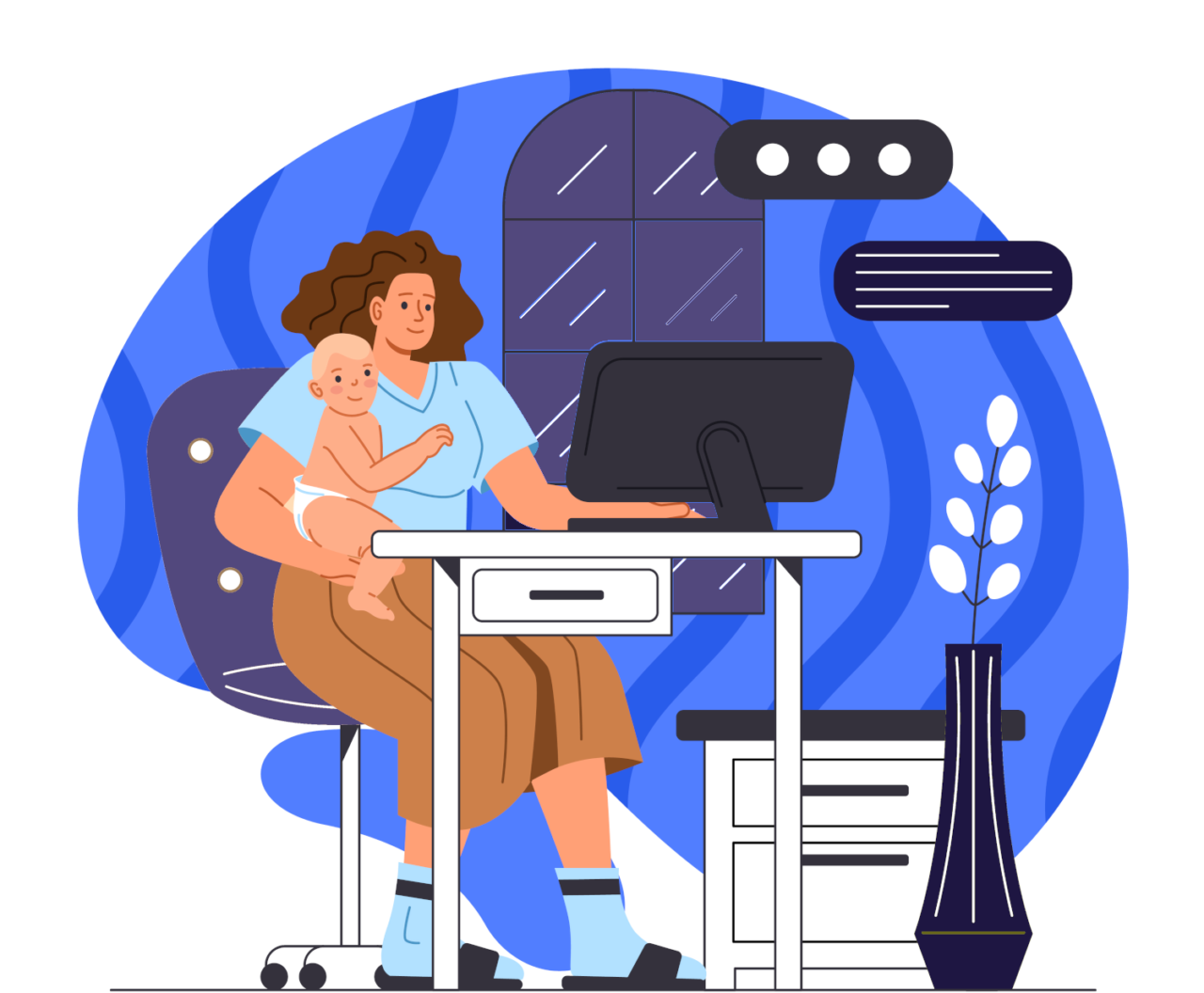
02 Oct Hiring Manager’s Guide to finding Remote Savvy Candidates
We’ve all seen the 1 or 2 people in every meeting who are hard to understand because their Wi-Fi signal is always struggling, their camera is always pointing at the ceiling so all you see is the top of their head because they haven’t figured out how to both see their screen, & make sure their camera centers them on the video call. Sometimes it’s just a matter of a few suggestions to help them improve. Other times they just don’t see it as important…as long as they are on the call, what difference does it make?
As of the writing of this article competition for remote roles is stiff, but the reality is that everyone who wants a remote role isn’t good at working remotely. The good news is that it’s not rocket science & anyone who wants to learn, can.
Managers who need to build remote work savvy teams will need to decide if less than tech savvy candidates are just a few tips away from proficiency, or if they’re just not ready yet & it would cost too much in time & resources to get them up to the starting line.
How to identify remove work savvy candidates during the interview
- Punctuality & Preparedness: The candidate’s ability to be on time for the interview, with a ready-to-go mindset, minimizing technical hiccups as much as possible, sets the stage. It reflects their time management skills that they’ve probably tested things before the call, & respect for others’ time, crucial in remote settings where synchronous interactions may be limited.
- Technical Proficiency: Reliable internet is the backbone of remote work. A candidate’s understanding of their connectivity & how to get the best out of it is crucial to their reliability & productivity. Additionally, their ease in using remote work tools during the interview—such as screen sharing or navigating software—highlights their technical readiness for remote work & offers a practical view of their comfort level with remote technology & their ability to multitask effectively.
- Professional Presentation on Camera: Given the virtual nature of remote interactions, a candidate’s presentation on camera, their posture, their engagement & comfort level with the video tools—provides insight into their remote work professional standards & gives you some insight into how well they will interact with the team using these tools. Showing a hesitancy to be on camera or constantly questioning the need doesn’t always mean a disdain for the responsibilities of remote work. Being on camera is not something we’re all immediately comfortable with. It takes practice. Managers building remote teams will need to be able to navigate this new reality with a little patience for those who are willing to improve.
- Audio Quality & Clarity: Clear audio is essential for effective communication. A candidate’s attention to detail ensuring their microphone provides clear communication, free of distracting background noise, allows for easy understanding speaks volumes about their commitment to clear & efficient communication with others. You will also need to consider their hardware limitations. It would be unfair to penalize a candidate who is looking for work, & likely experiencing financial limitations, because they can’t afford new, updated hardware. The company issued laptop should alleviate this issue.
- Responsiveness to Communications: How promptly & effectively a candidate responds to emails or messages prior to the interview can indicate their communication style & responsiveness to messages during business hours.
- Professional Environment: The ability to maintain a distraction-free & professional environment during the interview reflects on a candidate’s organizational skills & their respect for work-life boundaries. That they take work & the job they’re being paid for seriously, & don’t merely see it as an inconvenient interruption to their personal life.
Don’t get me wrong: I’m not saying that to be considered every candidate should have an over equipped, expensive office set up which costs thousands of dollars. That’s ridiculous. I’m saying that regardless of their remote workspace, they should be somewhat proficient in using their own tools & running their own infrastructure.
Update your interview questions
It was time to throw out that TGi Friday’s interview playbook years ago. Asking candidates what color would they be, or what their greatest weakness is does nothing to determine how well they do their job, adapt & excel in your organization. Those personality questions were created to judge the level of a candidate’s flair to see if they’d be a good fit to work the lunch shift 3 days a week. They never should have seeped into the corporate world & they are especially out of date in a remote work world with more pressing concerns.
Remote work is not a perk. It is a responsibility. If you’re trying to build a remote savvy team you need ask questions to determine how well they understand their responsibilities, how well they adapt to change,
Security
Employees are the greatest threat to the security of your organization. They don’t mean to be, that’s just the way it is. In the office someone else runs the infrastructure, provides the tools, & is responsible for security. Out in the wild…remote…it’s up to the worker to understand that they are now responsible for having good habits including device security, understanding the company’s security policies & whatever compliance & regulations need to be followed at all times. Don’t expect people to just know. They don’t. Ask most people & they think they’re “safe” because they don’t click on email links. Sounds great until they’re calling the help desk because their kid was playing a game on their work computer & “may have downloaded something”.
I think I’ve made my point here.
Conclusion
For managers, recognizing these remote work savvy traits early on can lead to building stronger, more adaptable teams poised for success in remote & hybrid environments.




I’m free weekdays 9AM-5PM EST


